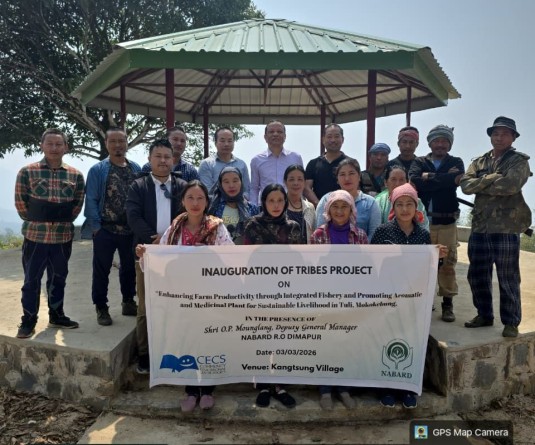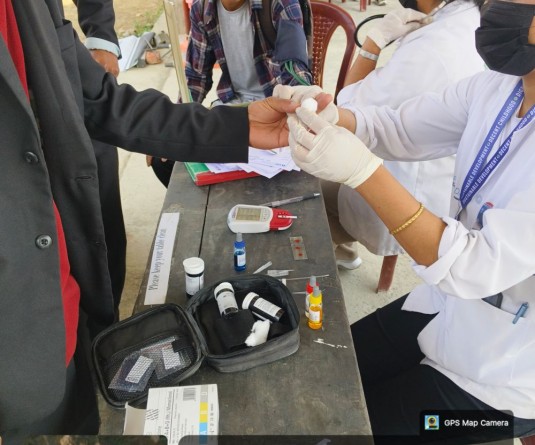
Kohima: “Vector borne diseases are one of the greatest contributor of mortality and morbidity in tropical settings and beyond,” said Dr. Takonungsang Lemtor, Director (FW), Chief Invitee on the World Health day held on April 7, at the Health Care Laboratory & Research Centre Conference hall, NHAK Kohima under the theme, ‘Small Creatures: Big Threats’ (Vector Borne diseases).
World Health Day observed
“Each of us are daily messengers of good health practices for the people in our community,” said Dr. Nandira Changkija in her keynote address to the nursing students and medical practitioners present at the event who pointed out the lack of responsibility in spreading health awareness to the society among many medical practitioners. Dr. Changkija further stated that staying healthy is not about taking medicines or getting one’s blood tested but also taking care of one’s environment while exhorting the congregation to contribute to health more meaningfully in each others’ lives and the community.
Dr. P Tia, Jt. Director & SPO (NVBDCP) chaired the event and a special number was presented by the nursing students followed by a speech by Dr. Takonungsang Lemtor, Director (FW). Vote of thanks was given by Sr. Vethihulu, Deputy Director (NVBDCP).
Dr. Takonungsang pointed out that Scrub Typhus is a major vector-borne disease affecting Nagaland, however the National Vector Borne Disease Control Program (NVBDCP) in India does not include the disease while covering only six disease namely Malaria, Dengue, Japanese encephalitis, Chikungunya, filariasis and Kala Azar. In 2011, 19 people in Nagaland died of Scrub Typhus, followed by 9 in 2012 which increased to 13 deaths in 2013. Death-related cases on Dengue, Filariasis, Kala Azar and Chikungunya were found nil while there were 2 deaths for Japanese encephalitis and 1 death for Malaria in 2013.
Some preventions for Vector-borne diseases are long lasting insecticide treated net, indoor residual spraying with insecticide like DDT, pyrenoids, spraying outer surfaces of animal shelter, outer latrine & damp places, adding chemical to drinking water for purification, using insect repellent like coils, vaporizing, aerosols, lid-water containers to prevent mosquito breeding, introducing larvivorus fish in ponds, waste-management, vaccination etc.
Vectors are living organism that can transmit infectious diseases from animals to humans. Mosquitoes are the best known disease vector some examples of vector borne diseases are Malaria, Dengue, Chikungunya, tick borne diseases, Scrub Typhus and Yellow fever.
The World Health Day was an outcome of the first World Health Assembly organized by the World Health Organisation in 1948 which today is held every year on April 7 to draw worldwide attention to a subject of major importance to global health each year.






